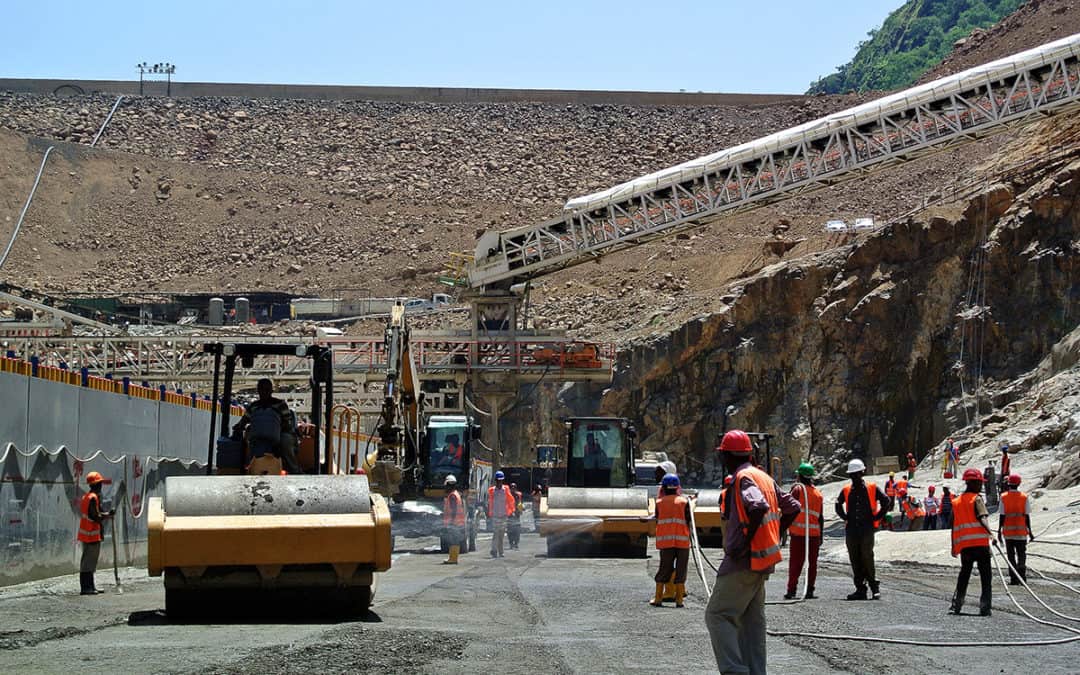
Spotlight: Ethiopia is taking over the world. But is it?
July 24, 2017
By Faith Abiodun (Nigeria)
According to all global development indices, things are certainly looking up for Ethiopia. The country was announced in June 2017 by the World Economic Forum as having the fastest growing economy in the world in 2017; only five years ago in 2012, it was the 12th in the world. Its 2017 GDP growth forecast of 8.3% is miles ahead of the global average of 2.7%. In 2011, it was reported by the World Bank that the percentage of Ethiopians living in extreme poverty had shrunk in under a decade from 55.3% to 33.5%. The Human Development Index which measures education, life expectancy and per capita income as a function of human development in a country saw Ethiopia’s rating increase from 0.222 in 2000 to 0.46 in 2015, making it the second fastest growing HDI in the world during those fifteen years. Ethiopia’s national road networks increased from 28,000 km in 2000 to 110,000 km in 2014; mobile phone subscribers and internet users reached 38.8 million and 9.4 million respectively in 2015; and a 69% decrease in maternal mortality coupled with a decrease in total fertility has seen Ethiopia record an unprecedented growth of life expectancy. These are definitely good times for Ethiopia.
Ethiopia’s government has declared that it intends to reach lower-middle income status over the next decade; for context, it is currently listed as one of the 10 poorest countries in the world by GDP per capita. Former Executive Secretary of the United Nations Economic Commission for Africa, Carlos Lopes was so confident of Ethiopia’s growth that he predicted that the country might challenge Nigeria and South Africa at the top of the continent’s economic chain by 2050, if it sustained its pace of economic growth. But what has Ethiopia done different to other African countries? The answer is simple: massive infrastructure investment.
Actually, the answer is not so simple. While Ethiopia has invested extensively in expanding Ethiopian Airlines, the country’s national carrier; expanding access to water and sanitation; upgrading its network of trunk roads, and opening the continent’s first fully electrified cross-border railway line covering more than 750km connecting it to Djibouti, there are sincere concerns about the sustainability of this project. Setting aside concerns about overt Chinese domination at the heart of the country’s infrastructure revolution, there are huge worries about the implication on public debt financing and suppression of individual freedoms in the country. The Ethiopia-Djibouti railway was 70% financed by China’s Exim Bank, built by the China Railway Group and China Civil Engineering Construction, and currently employs Chinese controllers, technicians and station masters, and will do so for the next five years, while their Ethiopian counterparts undergo “training”.
With more than $5.1 billion needed annually over the next decade to fund this infrastructure revolution, it is no surprise that Ethiopia has turned to the African Development Bank, World Bank, Chinese banks and other such donors to accelerate its economy. The implication of that is what the World Economic Forum estimates as public debt exceeding 50% of GDP. This implies that Ethiopia will spend a significant portion of its national income servicing debts at high interest rates for years to come. Ethiopia’s growth has been likened to the Chinese revolution of the past half-century, and that is perhaps no surprise given the heavy Chinese presence in the country, but Ethiopia might have taken a little more than inspiration from China. The allegations and reality of human rights suppression in the country are not to be taken lightly – weak press freedoms, oppression of minorities, heavy internet regulation, and denial of right of assembly. In essence, Ethiopia is a heavily regulated country, with citizens and foreigners living under perpetual fear of the regime.
In the search for a sustainable model of economic growth, it appears that there might be no win-win solution. Rwanda is widely derided in western media for the heavy influence of Paul Kagame on the country’s lifestyle, and now so is Ethiopia, following the examples of countries like Turkey and China where the sole influence of the country’s ruling political elite casts a dark shadow on the beautiful image of economic growth. As Africans, it is apparent that we cannot truly have it all, at least in the short term.
Faith Abiodun is Executive Director of Future Africa





Recent Comments